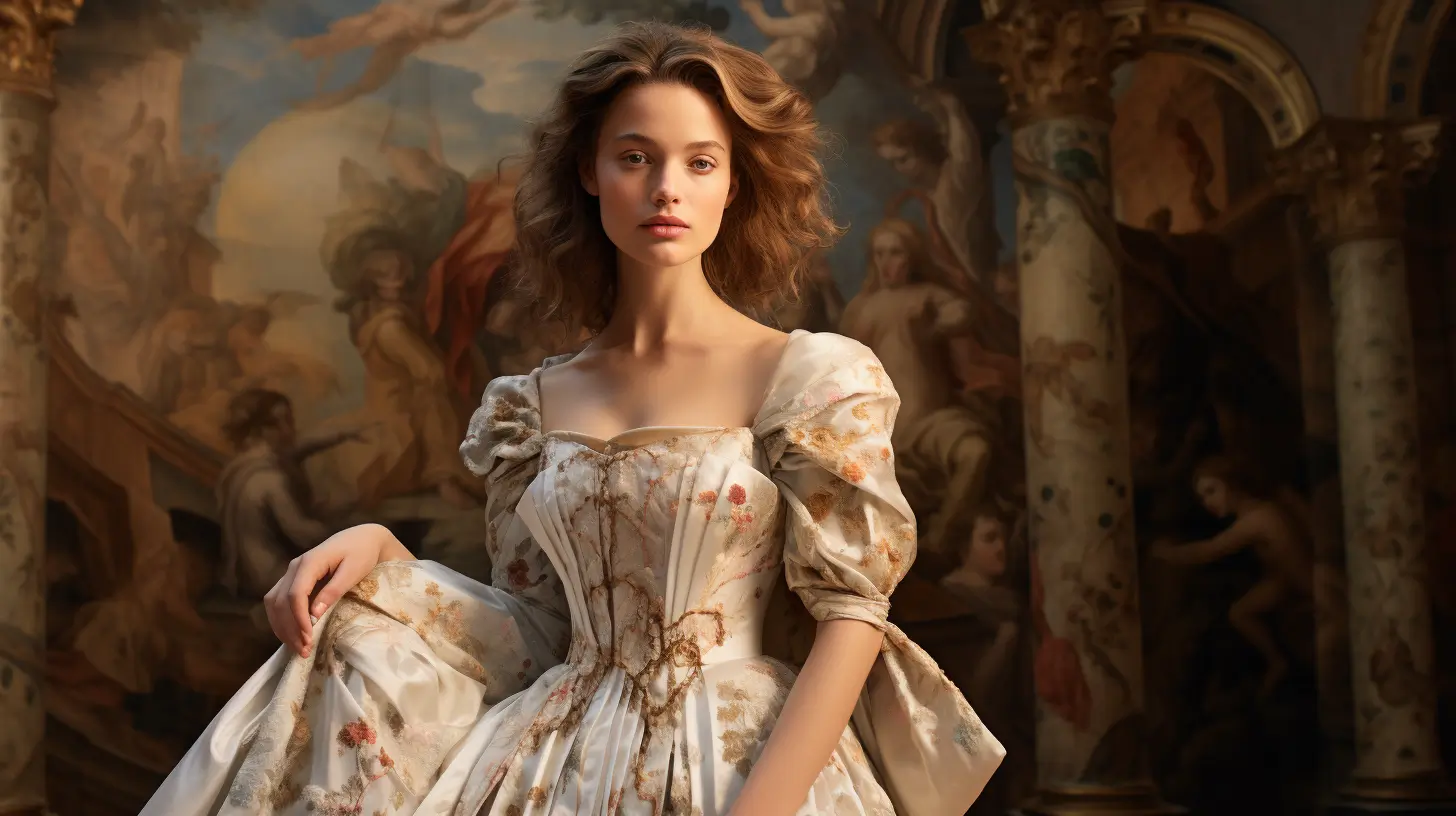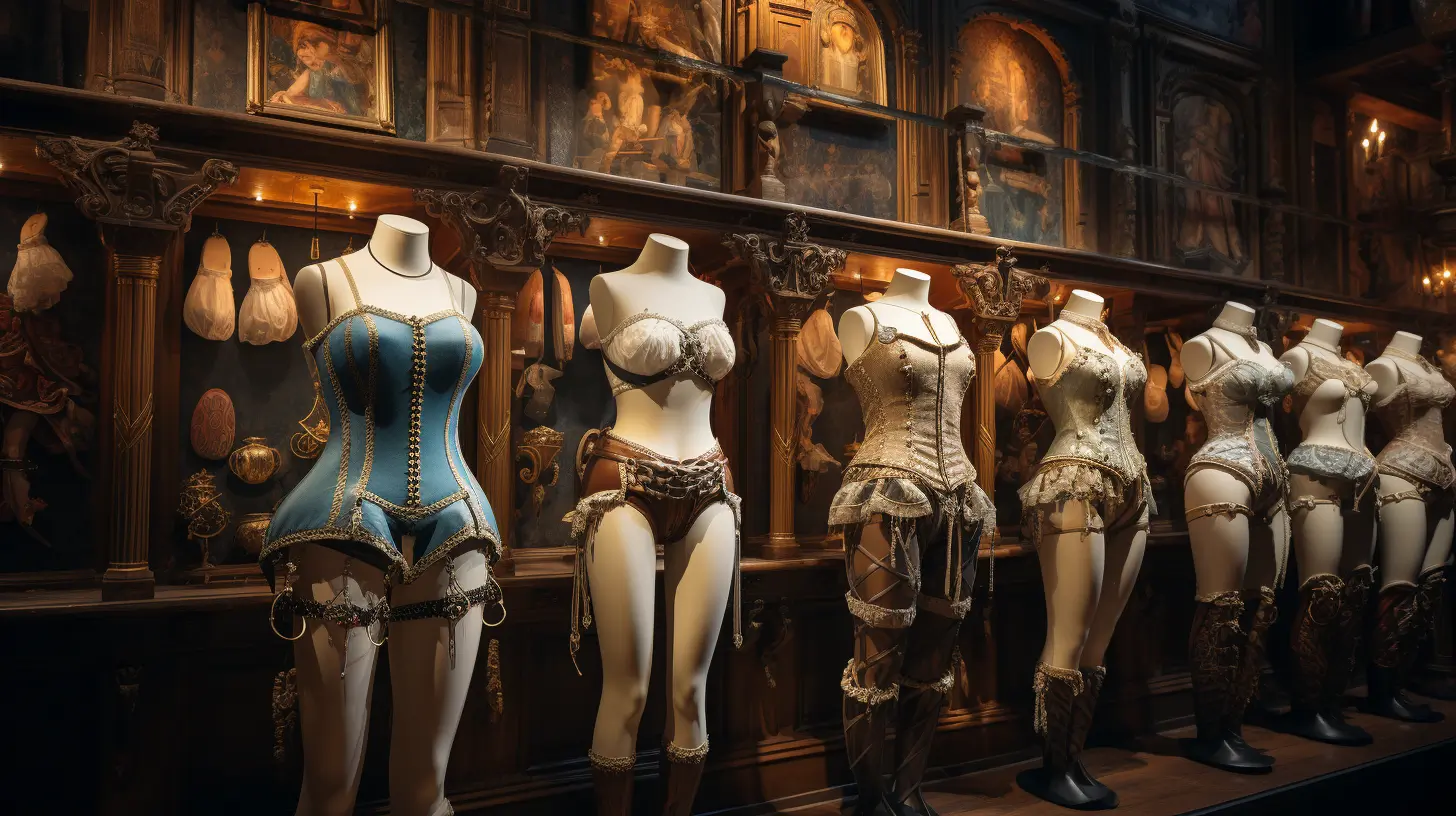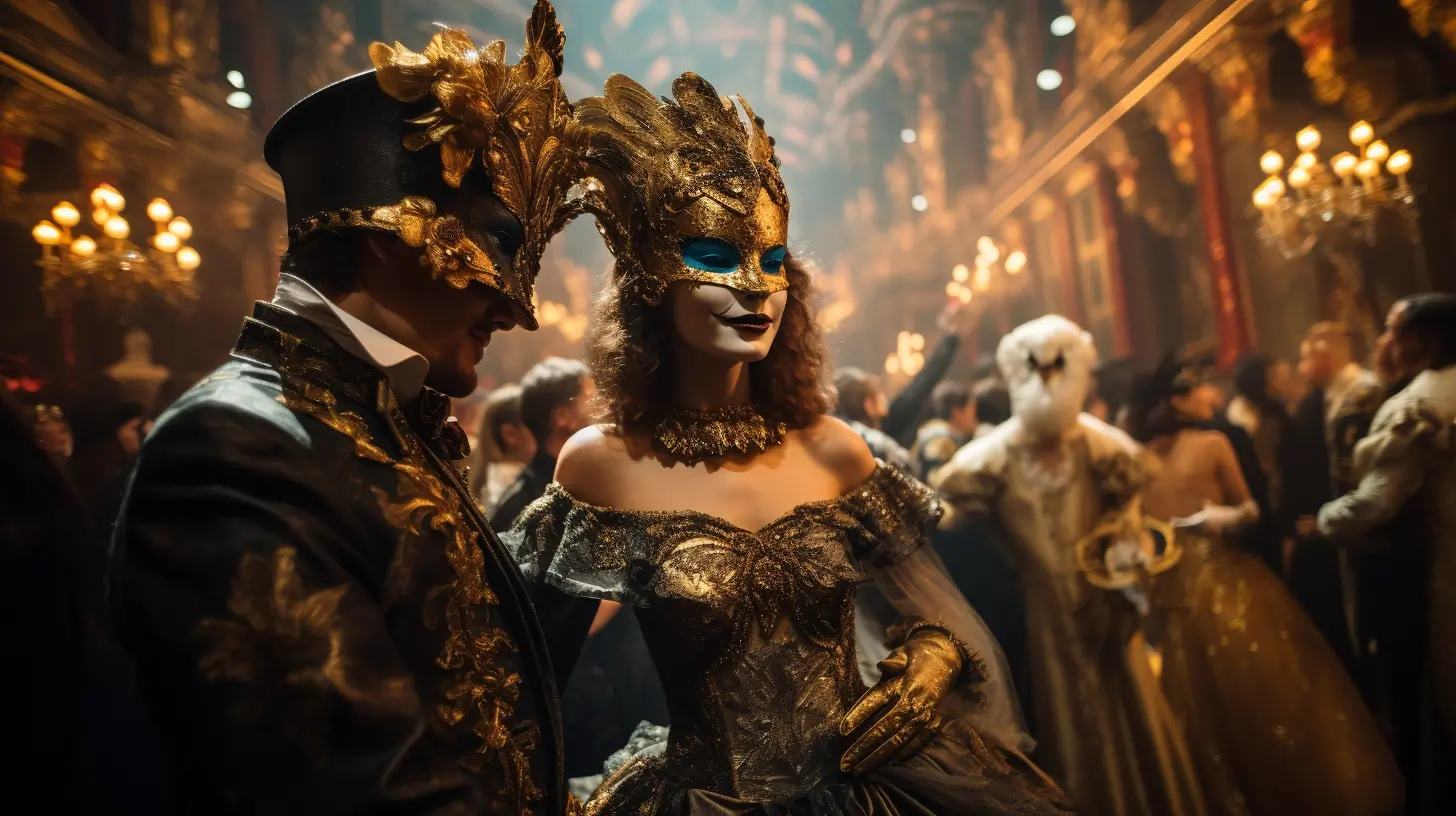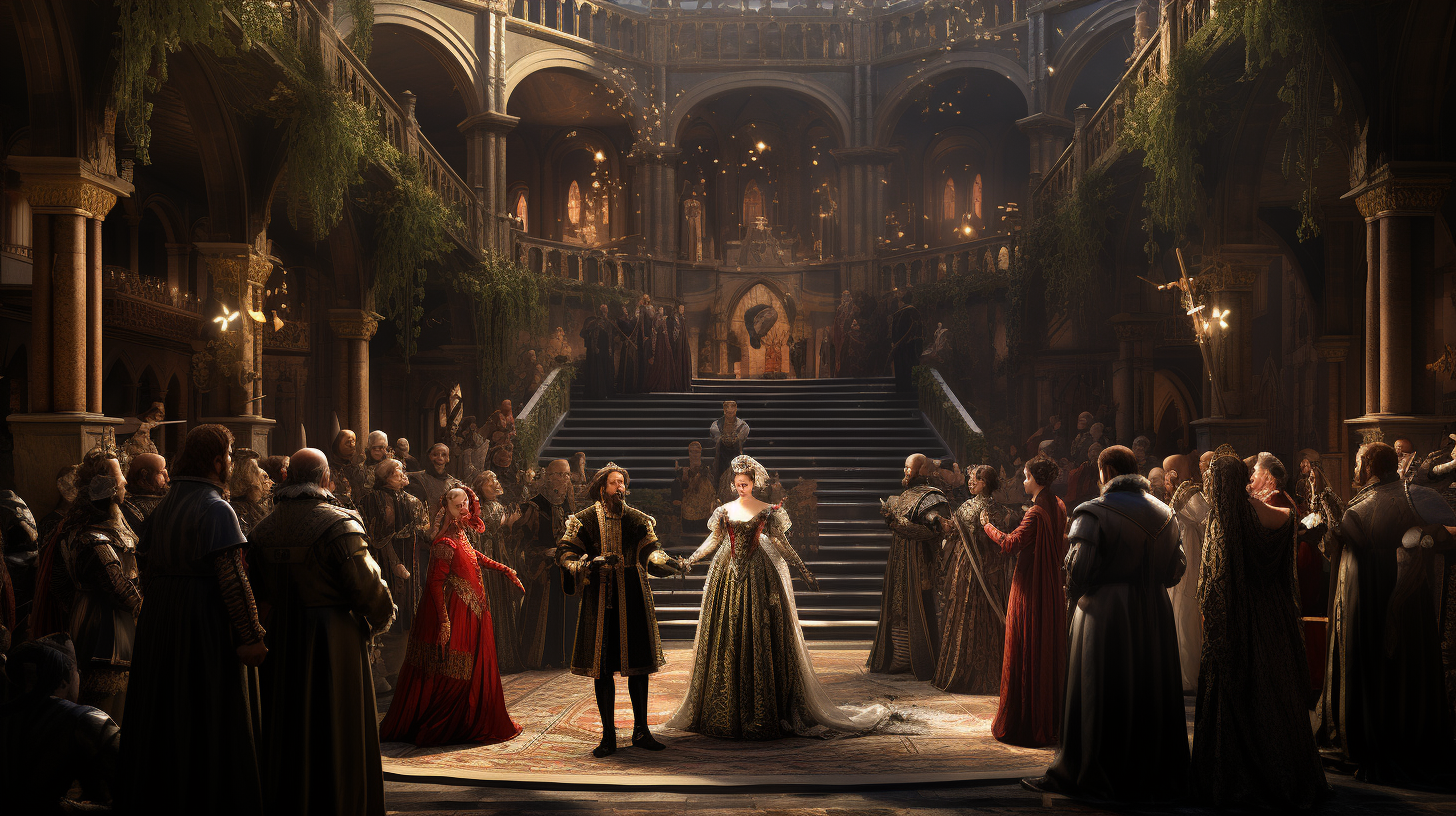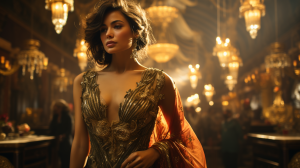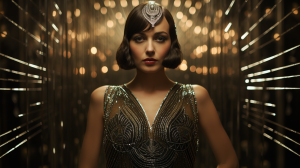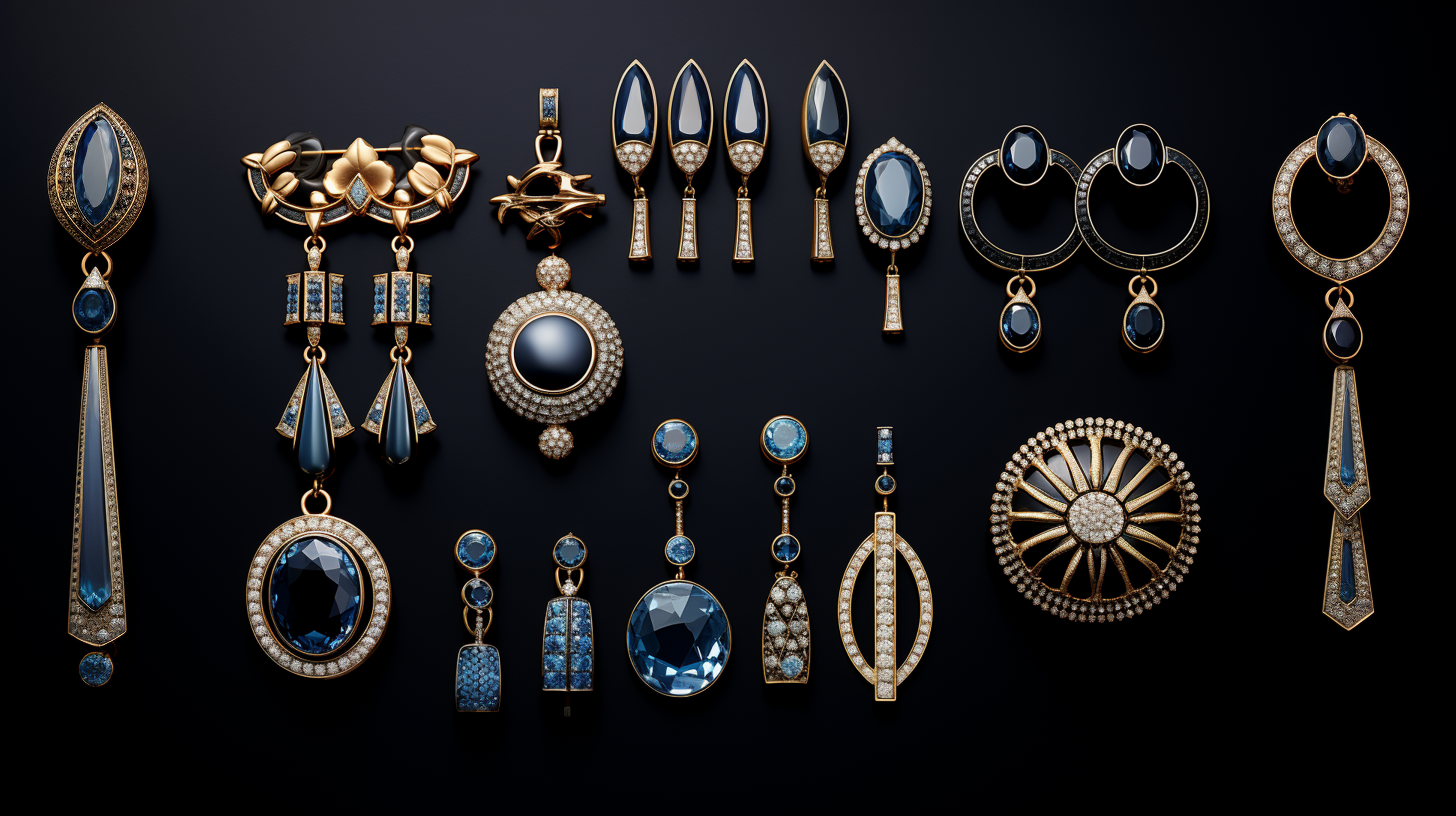
Art Deco Fashion Accessories: Completing the Iconic Look
Picture this: The Roaring Twenties, a time when fashion took a flamboyant leap into the future with its love affair for Art Deco — the geometry of the cosmos adorning our very bodies. It’s more than mere metal and thread; it’s the heartbeat of an era. Jewelry, hats, the accessories of yesteryear, they didn’t just sit pretty — they told a tale of triumph, of the jazz-fueled nights under an optimistic sky. So, grab a seat, as we weave through the tale of these trinkets and toppers that once defined the essence of chic.
Overview of the Art Deco Movement in Fashion
Imagine a canvas, once washed with the fluid curves of Art Nouveau, now bold, brazen, with the strokes of Art Deco. This wasn’t just a change in taste, but a revolution — a rebirth from the ashes of war and the splendor of newfound tombs. The world spun on its head at the Paris Design Exposition of ’25, where the lines of modernity etched a new era. This is where our journey with Art Deco begins, in the heart of innovation, where beauty was democratic, and design was as much about the future as it was about the now.
The Significance of Accessories in Art Deco Fashion
Accessories in the Art Deco epoch? They were the unsung heroes, the perfect accomplices to the sleek silhouettes of the day. They spoke of liberation, of the audacious spirit that danced to the Charleston. Through the shimmering screen, Hollywood’s darlings like Theda and Gloria donned these emblems, not just as ornaments, but as armors of personality, mirrors of the times.
Popular Art Deco Fashion Accessories
The pearls that kissed the necks, the bangles that chimed with every gesture, they were the chorus to the symphony of style. They brought the exuberance of distant lands, right to the doorstep of the ordinary, making every dame a duchess, every strut a parade.
Art Deco Jewelry Styles and Materials
In the alchemy of Art Deco, platinum danced with diamonds, and Bakelite paired with bright enamels. It was a visual sonnet, a kaleidoscope of the era’s daring. Craftsmanship met audacity, and together they turned every piece of jewelry into a memento of a time that worshipped the machine and the far-flung, the ancient and the avant-garde.
Art Deco Hats and Their Unique Features
The hats, oh the hats! They were the crowns of the era, perched atop the heads of those who dared to dream. Silk, felt, feathers — the ingredients were simple, but the statement was loud. They were the flags of freedom, of the right to be flamboyant, to be free.
Incorporating Art Deco Accessories into Modern Fashion
Now, to marry the old with the new, that’s the magic trick. A whisper of Art Deco in today’s wear, it’s like a wink from history, a nod to those heady days. It’s in the daring clash of a vintage brooch on a modern lapel, the story of the past embraced by the present.
The Evolution of Art Deco Jewelry in the 1920s
Flappers, the vanguard of vanity, they adopted Art Deco as their standard, parading it with every shimmy and shake. It was the visual beat to their rebellion, a toast to their unshackled dreams, poured in opulent gemstones and unyielding designs.
Materials and Techniques Used in Art Deco Jewelry
When you’re talking about the materials and techniques of Art Deco jewelry, you’re not just talking about pretty trinkets to doll up a dame before a night on the town. No sir, you’re talking about craftsmanship with a capital ‘C’ — the kind that takes the raw power of industry and turns it into something you can dangle from a wrist or a neckline.
Let’s take platinum — that’s not just a shiny metal, that’s the stuff of the stars, right there. It’s got a shine that doesn’t quit and a backbone that won’t bow. Jewelers in the Art Deco period, they didn’t just use platinum, they worked it, they coaxed it into shapes and filigrees that were as tough as they were elegant. It’s like they were engineering bridges for your collarbones, each link a testament to an era that believed the future was a gemstone just waiting to be set.
Then there’s steel. You might think of it as the workhorse of the industrial world, but back then, they saw the beauty in brawn. They took steel, the spine of the skyline and the railways, and softened it into something that could grace the gentle curve of a lady’s neck. It’s about finding the art in the industrial, the poetry in the practical.
And let’s not forget the enamels — the colors that could make a rainbow jealous. Those Art Deco artists, they were like alchemists, turning glass powder into glossy miracles, painting with fire and earth to give you a piece of wearable artwork. The enamels weren’t just slapped on — they were a master’s touch that turned every piece into a conversation. You didn’t just wear an Art Deco piece; you carried a story, a piece of the era’s soul captured in color and metal.
So, when you clasp that Art Deco necklace or slide on that ring, remember — you’re touching a piece of history, crafted by folks who were more than just jewelers. They were dreamers, innovators, and true artisans who left a legacy as durable and as dazzling as the materials they bent to their will.
The Influence of Art Deco Hats in Fashion
To truly appreciate the influence of Art Deco hats in the fashion world, you must picture the bustling streets of the 1920s, the air thick with jazz and the promise of newfound freedom. In this era of exuberance, hats were far more than mere accessories—they were the crowning glory of a woman’s attire, a bold punctuation mark at the end of the statement that was her ensemble.
These hats were emblematic of the new femininity, a femininity that was not whispered but announced with confidence. They were the sculptural expressions of a generation, brimming with geometric patterns and exulting in rich colors that were a feast for the eyes. Picture the cloche hat, that snug-fitting bell of fabric that seemed to encapsulate the sleek modernity of the time. It hugged the contours of a woman’s head, a seamless extension of the bob haircut, a cut that itself was a declaration of liberation.
The Art Deco period reveled in the defiance of the conventional, and this was nowhere more evident than in its millinery delights. Each hat was a miniature masterpiece, from the whimsically tilted brims that suggested a flirtatious quirk, to the skyscraper-inspired toppers that mirrored the burgeoning cityscapes. Feathers, beads, and bows were not mere embellishments; they were the exuberant shout of an era that celebrated the ornamental and the architectural in equal measure.
Beyond the aesthetic, Art Deco hats were a signal of societal evolution. They mirrored the modern woman’s emergence from the domestic shadows into the dazzling light of social and political arenas. These were the hats worn by the suffragettes, the flappers, the working woman—all harbingers of change, each fold and feather a testament to their wearers’ autonomy and style.
The resonance of Art Deco hats in fashion history is undeniable. It’s a legacy that continues to shape the modern conception of glamour and femininity. These hats were more than fabric and trim; they were the silhouettes of a revolution, the wearable art that allowed women to wear their independence atop their heads, as visible and vibrant as the era that birthed them.
Finding and Incorporating Art Deco Jewelry Today
The quest for Art Deco today? It’s a treasure hunt for the soul, a dive into the digital troves and the alcoves of antiquity. It’s about finding that slice of time, that artifact that still whispers the roar of the ’20s, and letting it sing with your own sartorial symphony.
Conclusion
Art Deco — it transcended mere aesthetics to become a cultural phenomenon, an embodiment of an age that danced to the frenetic tempo of jazz and basked in the glittering promise of modernity. It was never confined to the realm of ornamentation; it was a movement that captured a mood, a spirited epoch that continues to reverberate through time.
Its enduring presence is palpable, resounding in the halls of antique shops where the sparkle of a vintage ring catches the eye, or in the quiet allure of a well-preserved felt hat displayed in a boutique window. Each piece is not only a relic of a bygone era but a tangible invitation to partake in a history that feels both distant and intimately close.
Art Deco beckons to us across the decades with the allure of its bold geometry and the whispers of its lavish motifs. It urges us not just to adorn ourselves with its treasures but to animate them, to step into the character of the past and bring its essence to life. It is an echo from a time when design was not just seen but felt, a call to intertwine our narrative with the threads of history.
To wear Art Deco is to drape oneself in a tapestry of stories, to acknowledge the craftspeople, the dreamers, the revolutionaries who wove their visions into the very fabric of this emblematic style. It’s an invitation to live history, to engage with it, to allow the lines and curves of Art Deco to resonate within us, imbuing our daily lives with a sense of elegance, audacity, and timeless beauty.
The echo of Art Deco is not a faint one; it is as resonant and vivid as ever, inviting us to look closer, to study the intricate details, and to recognize the craftsmanship that has rendered it immortal. In this way, Art Deco remains undiminished, a beacon of a bygone glamour that continues to shine, illuminating the path for future expressions of art and style.


